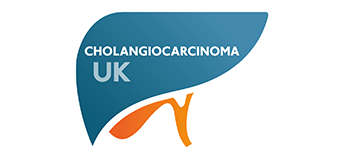CC Meeting Report
NCRI* Hepatobiliary subgroup meeting 1st March and subsequent meeting with Professor John Primrose, 7th March 2012.
AMMF has been asked to become a member of the NCRI Hepatobiliary subgroup in order to represent cholangiocarcinoma patients. Amongst those attending the meeting on 1st March were Dr John Bridgewater, Professor John Primrose, Dr Hassan Malik, Dr Harpreet Wasan, Dr Juan Valle, Professor Dan Palmer, and AMMF’s Helen Morement.
At this meeting, chemotherapy trials for CC were discussed, both current and future – the discussions were both complex and technical, and involved much that was at a very early stage. Amongst the items discussed were the following trials:
BILCAP – preparation for the next study was discussed, which may not be called BILCAP-2 if Capecitabine does not prove to be effective. If it does prove effective, then the surveillance only arm would be dropped.
The ABC-03 trial (Cisplatin, Gemcitabine and Cedirinib) is on target to complete recruitment by September.
ABC-04 (Cisplatin, Gemcitabine and Selumetinib**) is in the planning and will be run from two centres – the Hammersmith and Christie hospitals. (**Selumetinib is thought to enhance anti-tumour efficacy when combined with conventional chemotherapeutic agents)
Subsequent biliary tract studies were discussed, including a small trial to study the use of chemotherapy before surgery (BBC-01 – CisGem and Cetuximab), and thoughts on grouping subsequent biliary tract studies into an ”umbrella study”.
Helen Morement took the opportunity to explain to the group that patients can find the randomised aspect of trials quite difficult to deal with, and can feel distressed at finding themselves on the “observation only” arm of a trial. This was noted, and the group agreed that careful consideration should be given to how this is presented to patients. This will be followed up.
*NCRI (The National Cancer Research Institute) is a UK-wide partnership between the government, charity and industry which promotes co-operation in cancer research among the 22 member organisations for the benefit of patients, the public and the scientific community. http://www.ncri.org.uk
Meeting with Professor John Primrose, 7th March 2011
Following on from the HB subgroup meeting, AMMF’s Helen Morement met Professor Primrose, (liver surgeon and CC specialist in Southampton) on 7th March to discuss further and clarify the subjects that arose in that meeting, including the BILCAP trial, questions put forward by AMMF supporters, and other areas of CC treatment.
Professor Primrose explained that BILCAP will be recruiting for a further 12-14 months. When pressed about interim results and the time frame until final results, he explained that trials are independently monitored and these monitors control when the trial is ready to be analysed (after a certain number of patients have had disease recurrence). The analysis is also carried out independently so the results are completely unbiased, and there is absolutely no way of knowing the full results until the end of the trial. However, he did say that that at present patients were actually doing better than had been expected, that the chemotherapy (Capecitabine) was being well tolerated and they are currently happy with the trial in every way. Final results were initially anticipated for 2014, but may now be later.
Professor Primrose was asked why treatment options seemed to differ in the USA from those in the UK. He explained that setting up trials in the USA was difficult because of the nature of their health care funding (and also because of difficulties with patients’ expectations, insurance companies and consultants). It is very difficult for them to run advanced trials as the UK does – in fact, in this respect, the UK is far ahead of the USA. Professor Primrose mentioned he wanted to run BILCAP and ABC-02 in the USA, but it was not possible because there are immense difficulties there in running trials with an observation arm. So collaboration at this level on research remains a problem. As the successor to the BILCAP trial will need to be international, this will probably include Australasia, because the problems in the USA make it too difficult to include them.
(NB: News just in on a new International Guidelines Panel. Further details coming soon. 12.03.12)
Surgery was discussed, and Professor Primrose mentioned the new study of a small group of patients who are to receive chemotherapy before resection for CC. He also mentioned that he now routinely carries out portal vein embolisation before resection for CC as that treatment, which encourages growth of the part of the liver to be retained, has been shown to be effective.
The subject of transplantation also arose – and Professor Primrose expressed his doubt about this becoming a “standard” treatment for CC, because CC often recurs systemically, and of course because of the shortage of donor livers.
Radiotherapy was touched on, but it seems the jury is still out on that one as there is so little data. He did mention bracytherapy and that there are some small trials underway in Hammersmith – the problem of systemic relapse with CC being raised again here. PDT (photodynamic therapy) was mentioned but, despite initially looking hopefully, trials there have now provided negative results. Lastly in this area, CyberKnife was discussed – again thoughts here were that trials would need to be conducted, and that the problem of systemic relapse was still a barrier to this sort of treatment.
At the end of the meeting, AMMF’s aims to provide a complete information resource for all things to do with CC were discussed. The eventual hope is to include all centres and specialists with appropriate CC knowledge and experience on AMMF’s website. Professor Primrose agreed to help with this and we have now heard back from him that at the next meeting of the GB & Ireland HPB Association, “CC centres of excellence” will be discussed with a view to coming up with a list, which will be extremely helpful.
AMMF, now a patient representative on the NCRI HB subcommittee, hopes to be able to raise further questions on behalf of its supporters, and to receive answers on current thinking from those at the forefront of work on cholangiocarcinoma.
Posted 12.03.2012







